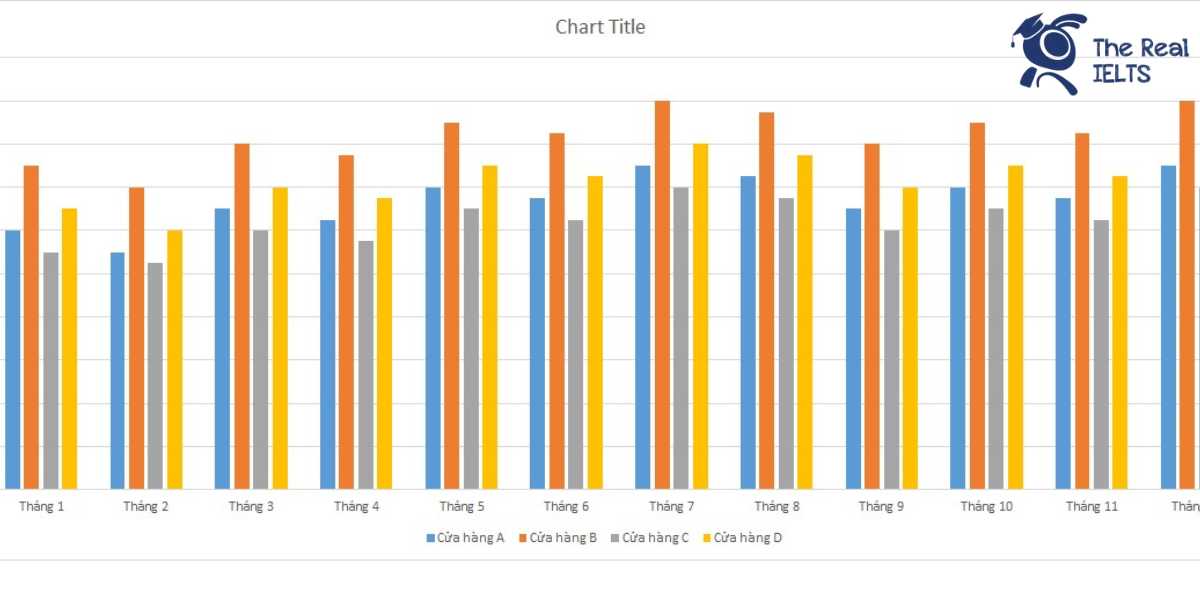Luyện tập IELTS Reading ngày 18 có chủ đề: The Science of Climate Change and Its Global Impact. Bài này thuộc chuỗi IELTS Reading: 30 chủ đề luyện tập. Mỗi bài này luyện tập khoảng 30 phút.
Học lại bài cũ: IELTS READING Day 17: The Role of Education in Poverty Reduction.
Đọc bài IELTS Reading và trả lời câu hỏi ở bên dưới
The Science of Climate Change and Its Global Impact
Climate change is one of the most pressing challenges of the 21st century, with far-reaching consequences for the planet and its inhabitants. Rooted in the science of Earth’s atmospheric processes, climate change refers to long-term shifts in temperature, precipitation, and weather patterns due to both natural and human factors. Understanding the science behind climate change is crucial for addressing its global impact, which ranges from rising sea levels to more frequent extreme weather events.
The Science Behind Climate Change
The Earth’s climate is regulated by the balance of energy received from the sun and the energy radiated back into space. The atmosphere, consisting of gases like nitrogen, oxygen, carbon dioxide (CO₂), methane (CH₄), and water vapor, plays a crucial role in trapping some of this heat in a process called the greenhouse effect. This natural phenomenon keeps the planet warm enough to support life. However, human activities, particularly since the Industrial Revolution, have significantly altered this balance.
The burning of fossil fuels (coal, oil, and natural gas) for energy, deforestation, and industrial activities have led to an increase in greenhouse gas concentrations in the atmosphere. CO₂ and methane, in particular, are potent heat-trapping gases. As these gases accumulate, more heat is retained, leading to a rise in the Earth’s average temperature, a phenomenon commonly referred to as global warming. This warming is a key driver of broader climate change.
Evidence of Climate Change
Scientific evidence for climate change is overwhelming. Data from ice cores, tree rings, and ocean sediments provide insights into the Earth’s past climate, revealing that current warming is happening at an unprecedented rate. Modern observations, such as satellite data, show a steady increase in global temperatures, with the past few decades being the warmest on record. In addition, glaciers and polar ice caps are melting, contributing to rising sea levels. The Arctic, for instance, has lost about 13% of its sea ice per decade since 1979.
The Intergovernmental Panel on Climate Change (IPCC) has reported that the Earth’s average surface temperature has risen by approximately 1.1°C since the late 19th century, with most of the warming occurring in the past 40 years. This rise in temperature is closely linked to human activities, as evidenced by the correlation between CO₂ emissions and global temperature trends.
Global Impacts of Climate Change
The consequences of climate change are already being felt across the globe. One of the most visible effects is the increase in extreme weather events. Hurricanes, heatwaves, floods, and droughts have become more frequent and severe, affecting millions of people worldwide. In 2023 alone, regions like North America and Europe experienced record-breaking heatwaves, while catastrophic flooding hit countries such as Pakistan and China.
Rising sea levels pose a significant threat to coastal communities. As glaciers and ice sheets melt, and seawater expands due to warming, the global sea level is projected to rise by up to 1 meter by 2100. This could displace millions of people living in low-lying areas, particularly in countries like Bangladesh, Vietnam, and the Maldives. Island nations are especially vulnerable, with some at risk of disappearing entirely.
Agricultural productivity is also under threat. Changes in rainfall patterns, coupled with increased temperatures, are disrupting farming practices. In some regions, droughts have become more frequent, leading to water scarcity and crop failures. This has serious implications for food security, particularly in developing countries that rely heavily on agriculture.
Biodiversity is another area heavily impacted by climate change. Many species are struggling to adapt to rapidly changing environments, resulting in shifts in habitat ranges and, in some cases, extinction. For example, polar bears, which depend on sea ice for hunting, are facing declining populations as the ice melts. Coral reefs, home to some of the most diverse ecosystems on the planet, are also dying due to ocean acidification and warming waters, a process known as coral bleaching.
Mitigation and Adaptation
Addressing climate change requires both mitigation and adaptation strategies. Mitigation refers to efforts to reduce or prevent the emission of greenhouse gases. This can be achieved through transitioning to renewable energy sources, such as solar, wind, and hydropower, improving energy efficiency, and protecting forests, which act as carbon sinks. International agreements like the Paris Agreement aim to limit global warming to below 2°C above pre-industrial levels, with a more ambitious target of 1.5°C.
Adaptation, on the other hand, involves adjusting to the current and expected impacts of climate change. This includes building resilient infrastructure, developing early warning systems for extreme weather events, and improving water management practices. Some countries are already implementing these strategies. For example, the Netherlands, with its extensive history of water management, is investing in innovative flood protection systems to cope with rising sea levels.
The science of climate change is well-established, and its global impact is undeniable. As greenhouse gas emissions continue to rise, the planet faces increasingly severe consequences, from extreme weather events to biodiversity loss and threats to food security. Both mitigation and adaptation strategies are essential to address this crisis. The international community must work together to reduce emissions, invest in renewable energy, and build resilience to ensure a sustainable future for all. Understanding the science behind climate change is the first step towards meaningful action on a global scale.
Từ vựng
- Climate change – Biến đổi khí hậu
- Consequences – Hậu quả
- Atmospheric processes – Quá trình khí quyển
- Temperature – Nhiệt độ
- Precipitation – Lượng mưa
- Weather patterns – Mô hình thời tiết
- Human factors – Yếu tố con người
- Global impact – Tác động toàn cầu
- Rising sea levels – Mực nước biển dâng
- Extreme weather events – Hiện tượng thời tiết cực đoan
- Greenhouse effect – Hiệu ứng nhà kính
- Fossil fuels – Nhiên liệu hóa thạch
- Industrial activities – Hoạt động công nghiệp
- Greenhouse gases – Khí nhà kính
- Methane – Khí mê-tan
- Global warming – Sự nóng lên toàn cầu
- Ice cores – Lõi băng
- Tree rings – Vòng cây
- Ocean sediments – Trầm tích đại dương
- Glaciers – Sông băng
- Polar ice caps – Chỏm băng địa cực
- Intergovernmental Panel on Climate Change (IPCC) – Ủy ban liên chính phủ về biến đổi khí hậu
- Surface temperature – Nhiệt độ bề mặt
- Hurricanes – Bão lớn
- Heatwaves – Đợt nắng nóng
- Floods – Lũ lụt
- Droughts – Hạn hán
- Catastrophic flooding – Lũ lụt thảm khốc
- Agricultural productivity – Năng suất nông nghiệp
- Water scarcity – Thiếu nước
- Food security – An ninh lương thực
- Biodiversity – Đa dạng sinh học
- Extinction – Sự tuyệt chủng
- Coral reefs – Rạn san hô
- Ocean acidification – Sự axit hóa đại dương
- Coral bleaching – Hiện tượng tẩy trắng san hô
- Mitigation – Giảm thiểu
- Adaptation – Thích ứng
- Renewable energy – Năng lượng tái tạo
- Solar – Năng lượng mặt trời
- Wind power – Năng lượng gió
- Hydropower – Thủy điện
- Energy efficiency – Hiệu quả năng lượng
- Carbon sinks – Bể chứa carbon
- Paris Agreement – Hiệp định Paris
- Resilient infrastructure – Cơ sở hạ tầng kiên cố
- Early warning systems – Hệ thống cảnh báo sớm
- Water management – Quản lý nước
- Flood protection systems – Hệ thống bảo vệ chống lũ
Câu hỏi IELTS Reading The Science of Climate Change and Its Global Impact
1. Multiple Choice Questions (MCQ)
- What is the primary cause of the increase in greenhouse gases in the atmosphere?
- A. Deforestation
- B. Industrial activities and the burning of fossil fuels
- C. Natural weather patterns
- D. Rising sea levels
- According to the passage, what is the projected sea level rise by 2100?
- A. 0.5 meters
- B. 1 meter
- C. 2 meters
- D. 3 meters
- What is the role of the Intergovernmental Panel on Climate Change (IPCC)?
- A. To organize climate-related conferences
- B. To study past climate patterns
- C. To provide reports on global warming and its effects
- D. To enforce climate regulations
2. True/False/Not Given
- Human activities have been the primary driver of global warming since the 19th century.
- True / False / Not Given
- Coral reefs are unaffected by climate change because they exist in stable ocean environments.
- True / False / Not Given
- Mitigation strategies focus on adapting to the effects of climate change.
- True / False / Not Given
3. Matching Information
Match the following impacts with their respective consequences mentioned in the passage:
- Impacts:
- A. Extreme weather events
- B. Rising sea levels
- C. Agricultural productivity
- D. Biodiversity
- Consequences:
- Disruption in farming practices
- Loss of habitats and species
- Frequent floods and hurricanes
- Displacement of coastal populations
4. Short Answer Questions
- What gases are responsible for the greenhouse effect?
- How does climate change affect food security in developing countries?
- Why are island nations particularly vulnerable to climate change?
5. Sentence Completion
Complete the following sentences using words from the passage:
- The ____________ effect is essential for keeping the Earth warm enough to support life.
- Rising global temperatures are leading to the melting of glaciers and ____________.
- The process of reducing greenhouse gas emissions to mitigate climate change is known as ____________.
6. Summary Completion
Complete the summary using words from the passage:
Climate change is driven by the increase in ____________ gases such as CO₂ and methane. These gases trap heat, leading to the phenomenon of ____________. As a result, the Earth’s surface temperature has risen, causing severe impacts like ____________ weather events and the melting of ____________ caps.
Đáp án IELTS Reading The Science of Climate Change and Its Global Impact
1. Multiple Choice Questions (MCQ)
- B. Industrial activities and the burning of fossil fuels
- B. 1 meter
- C. To provide reports on global warming and its effects
2. True/False/Not Given
- True – The passage mentions that human activities, especially since the Industrial Revolution, have significantly contributed to global warming.
- False – The passage discusses how coral reefs are being affected by ocean acidification and coral bleaching due to climate change.
- False – Mitigation strategies focus on reducing the causes of climate change, while adaptation strategies deal with adjusting to its effects.
3. Matching Information
- A. Extreme weather events → 3. Frequent floods and hurricanes
- B. Rising sea levels → 4. Displacement of coastal populations
- C. Agricultural productivity → 1. Disruption in farming practices
- D. Biodiversity → 2. Loss of habitats and species
4. Short Answer Questions
- Greenhouse gases responsible for the greenhouse effect include carbon dioxide (CO₂) and methane.
- Climate change affects food security in developing countries by causing disruptions in agricultural productivity, leading to food shortages.
- Island nations are particularly vulnerable to climate change because of rising sea levels and their low-lying geography, which makes them more susceptible to flooding and displacement.
5. Sentence Completion
- The greenhouse effect is essential for keeping the Earth warm enough to support life.
- Rising global temperatures are leading to the melting of glaciers and polar ice caps.
- The process of reducing greenhouse gas emissions to mitigate climate change is known as mitigation.
6. Summary Completion
Climate change is driven by the increase in greenhouse gases such as CO₂ and methane. These gases trap heat, leading to the phenomenon of global warming. As a result, the Earth’s surface temperature has risen, causing severe impacts like extreme weather events and the melting of polar ice caps.















